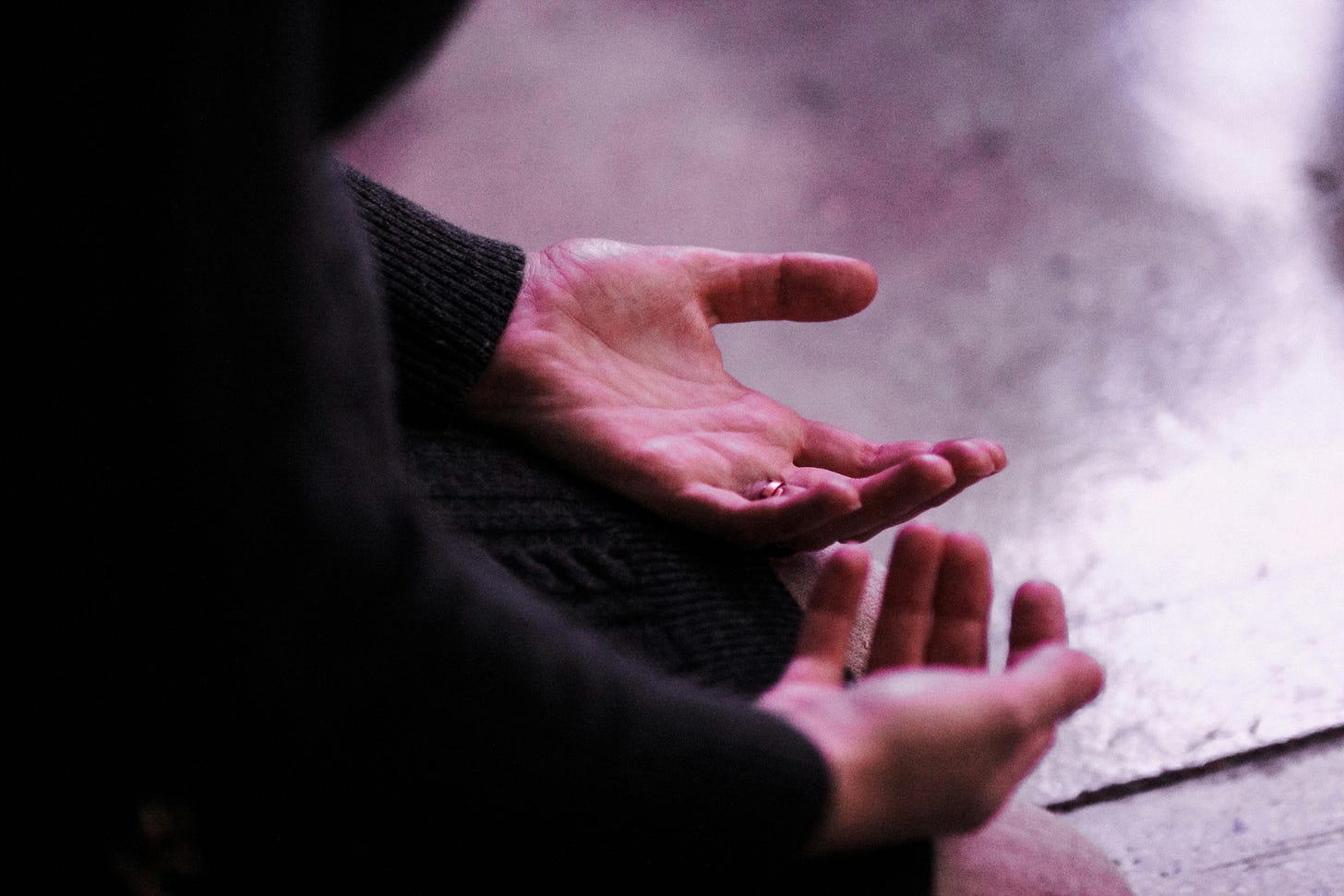Lent Is Not a Self-Improvement Project
Let's make some room for God & neighbour
It’s only the start of February, but Lent arrives early this year, which means we may find ourselves jumping straight from a season of goal-setting into a season of penitence. There’s nothing wrong with that, but sometimes we can mix the two up.
And that can be a problem: for some of us, Lent becomes yet another self-improvement project.1
While Lent has always been my favourite liturgical season, I don’t think it’s particularly virtuous on my part: it’s more that it tends to align with my natural preference for minimalism, which makes me happy to cut away extra stuff, or the perfectionist in me who loves a good sense of achievement at the end of 40 days without chocolate or alcohol.
But as I’ve gotten older, Lent has become more difficult. I’ve had a harder time keeping resolutions due to some combination of lowered willpower, decreased energy, and various health issues. The human side of it all—the opportunity to indulge my love of bare walls and embrace habit tracking—has given way to a realization that a “good Lent” isn’t about me ticking all the boxes of self-satisfaction. A good Lent is where I come out on the other side of 40 days a little bit closer to the Lord than when I started.
The extra disciplines we take on? They’re not about us. They’re about helping us to know Him.
“Through our annual Lenten observance, Lord, deepen our understanding of the mystery of Christ and make it a reality in the conduct of our lives.”2
Going deeper into the mystery of Christ. That’s what Lent is all about.
Christ was pretty clear about his own mission: to show us the Father. And how did he go deeper into the great mystery of God? He took time away. Away from the crowds, away from the noise, away from people pressing in on Him. Away from all sorts of good things, like preaching and casting out demons and doing miracles. He went away to a quiet place to spend time with the Father.
Will we spend our Lent doing that?
Our Lenten disciplines exist to make room in us. Room for God. Room for others. Room for ourselves to breathe so we can actually be present to God and others.
From the earliest centuries, Christians have dedicated certain seasons to penitence, giving more time and energy to prayer and fasting and almsgiving. They have done these things not for their own sakes, or to try and “earn” God’s love more (an impossible task!), but to remind themselves Who and what should have priority in their lives.
Prayer recognizes God’s presence in every facet of our days. Penance helps cleanse us from attachments to things that pull us away from the Good. Fasting, by giving us a break even from good things, reminds us that there is Someone better. Almsgiving creates space for others in the Body of Christ, by carving out space in our own resources.
If our disciplines aren’t creating room, they’re creating work.
Making room takes effort, but it isn’t work for its own sake. It isn’t about self-improvement. It’s actually not about us, at all. It’s about Him.
So as you think about what God might be inviting you to this Lent, ask yourself this: how am I making room to go deeper into the mystery of Christ?
To help you keep things simple, I’ve created a very straightforward worksheet that you can print out and pin up for the coming weeks. It’s an opportunity to write down how you want to make room in the three traditional ways: prayer, fasting, and almsgiving.
I’d encourage you to take some time this week to pray and think and maybe talk with a trusted person about the ways you want to create space for God and others in your soul, body, and resources. God has given us these gifts so that we can give back freely. What do you want to give Him?
How do you usually “do” Lent? What have you learned over the years in observing the season? I’d love to hear your thoughts in the comments, or you can just hit reply and let me know.
Maybe this isn’t your temptation. If you naturally tend toward the other extreme of not taking on any spiritual disciplines out of sheer laziness, then you might consider Lent as a chance to be motivated by something beyond yourself. Whether we tend towards overachievement or sloth, either way the point of Lent is to focus on God, not ourselves.
That’s the concluding prayer for Morning Prayer in the initial week of Lent.



Yeah, the am I doing enough, (ergo) am I good enough, questions can be tough for me.
Lent can be so emotionally complex. Its temptations are largely emotional for me, not physical! Your piece resonates.